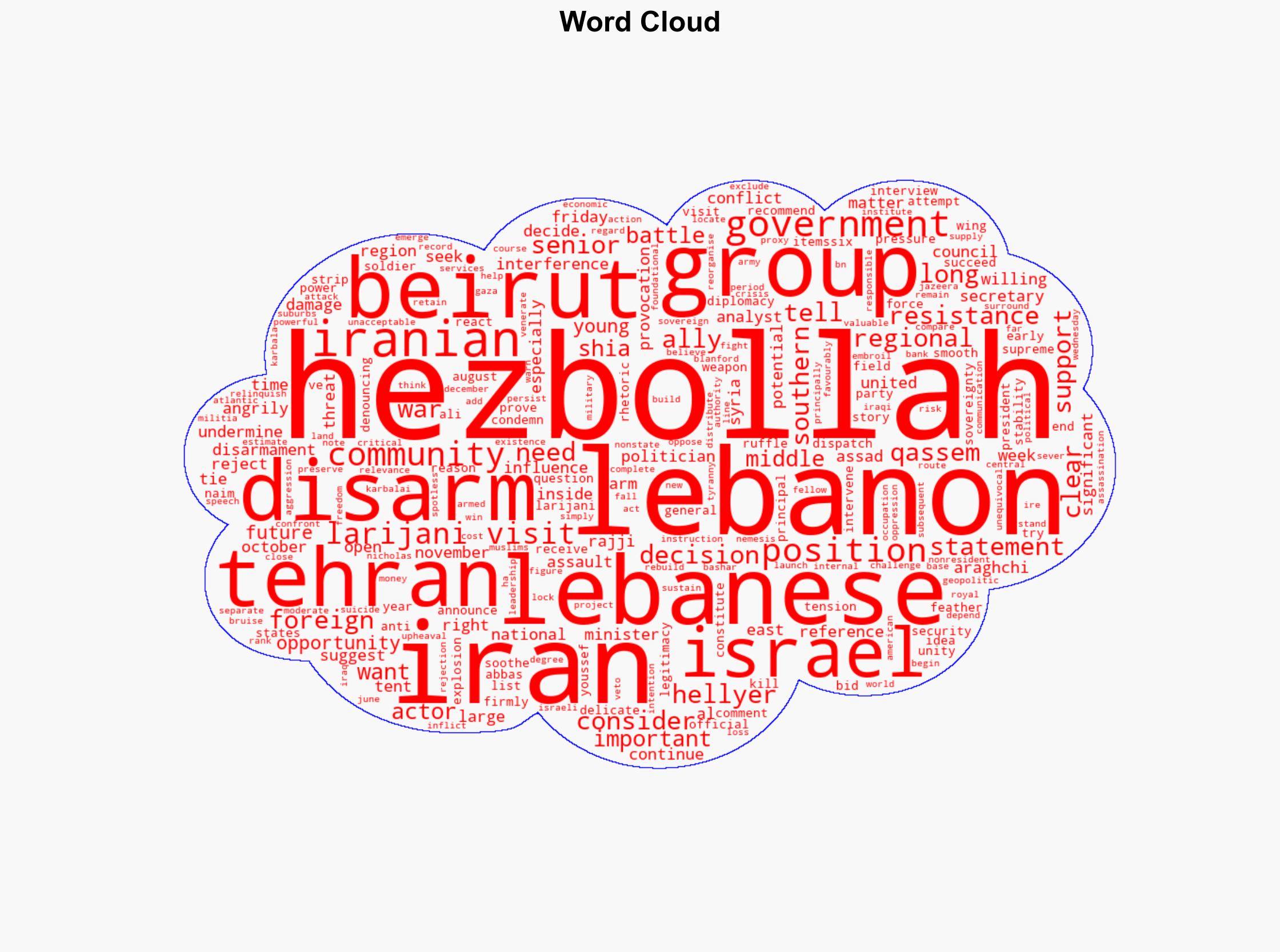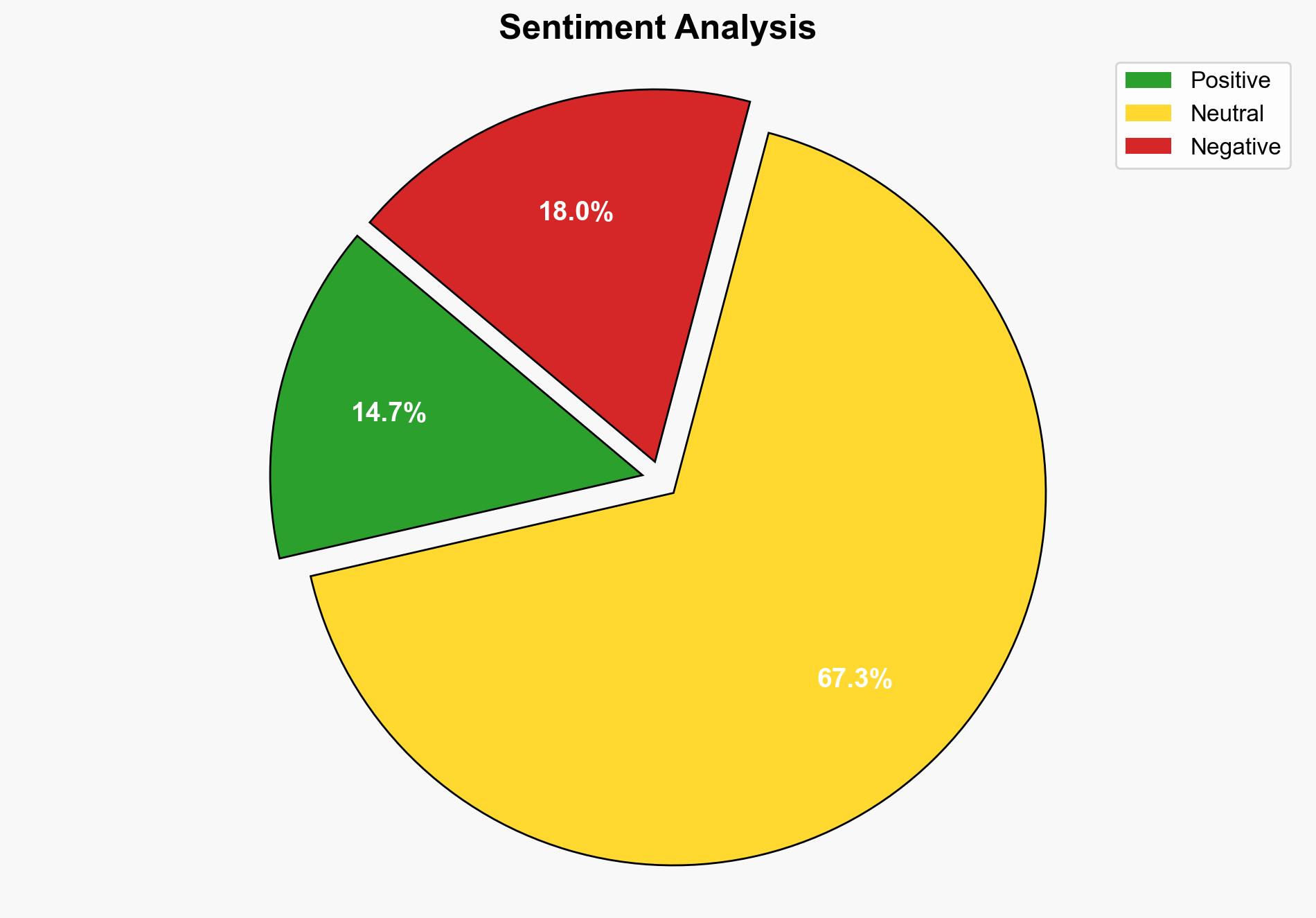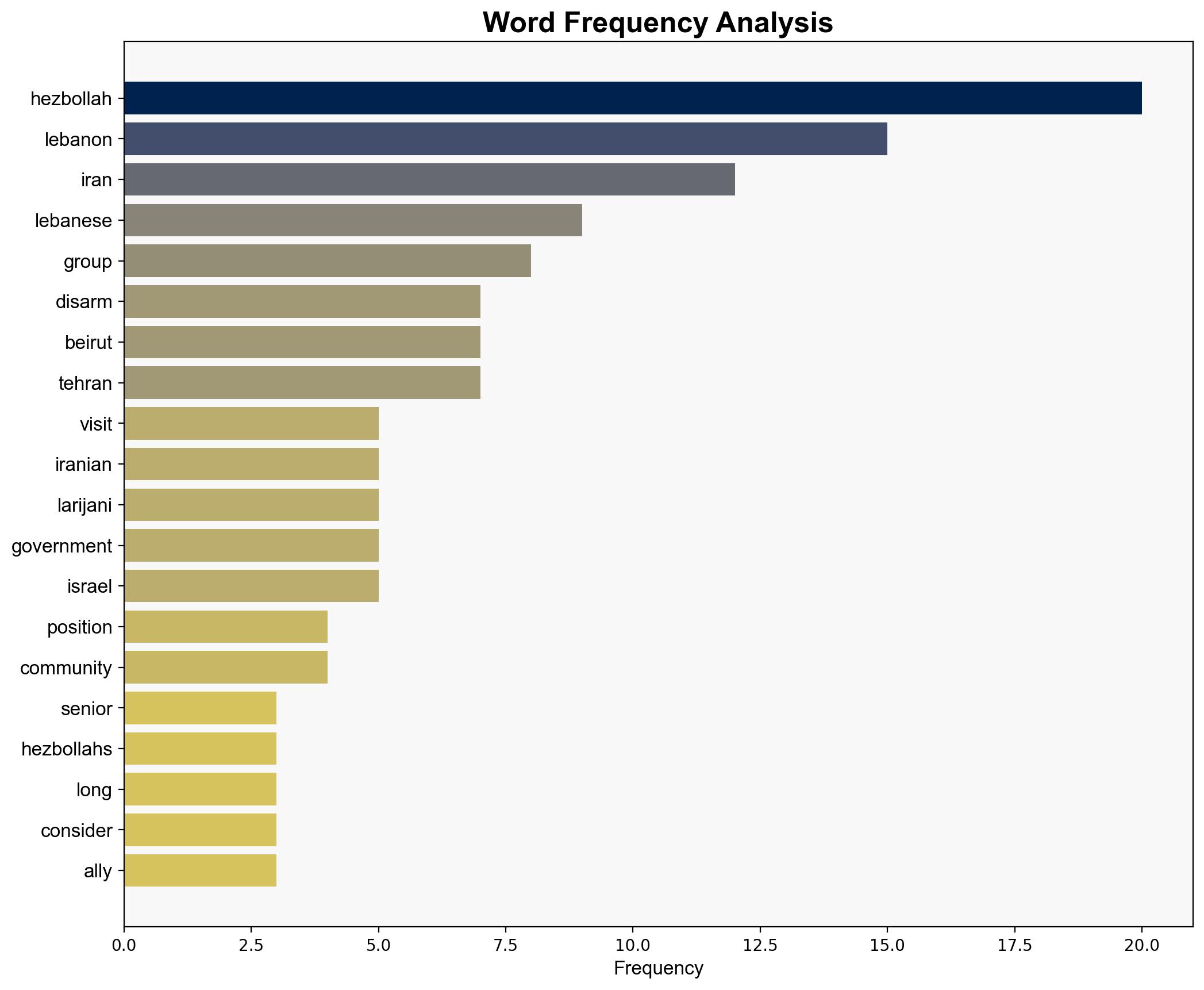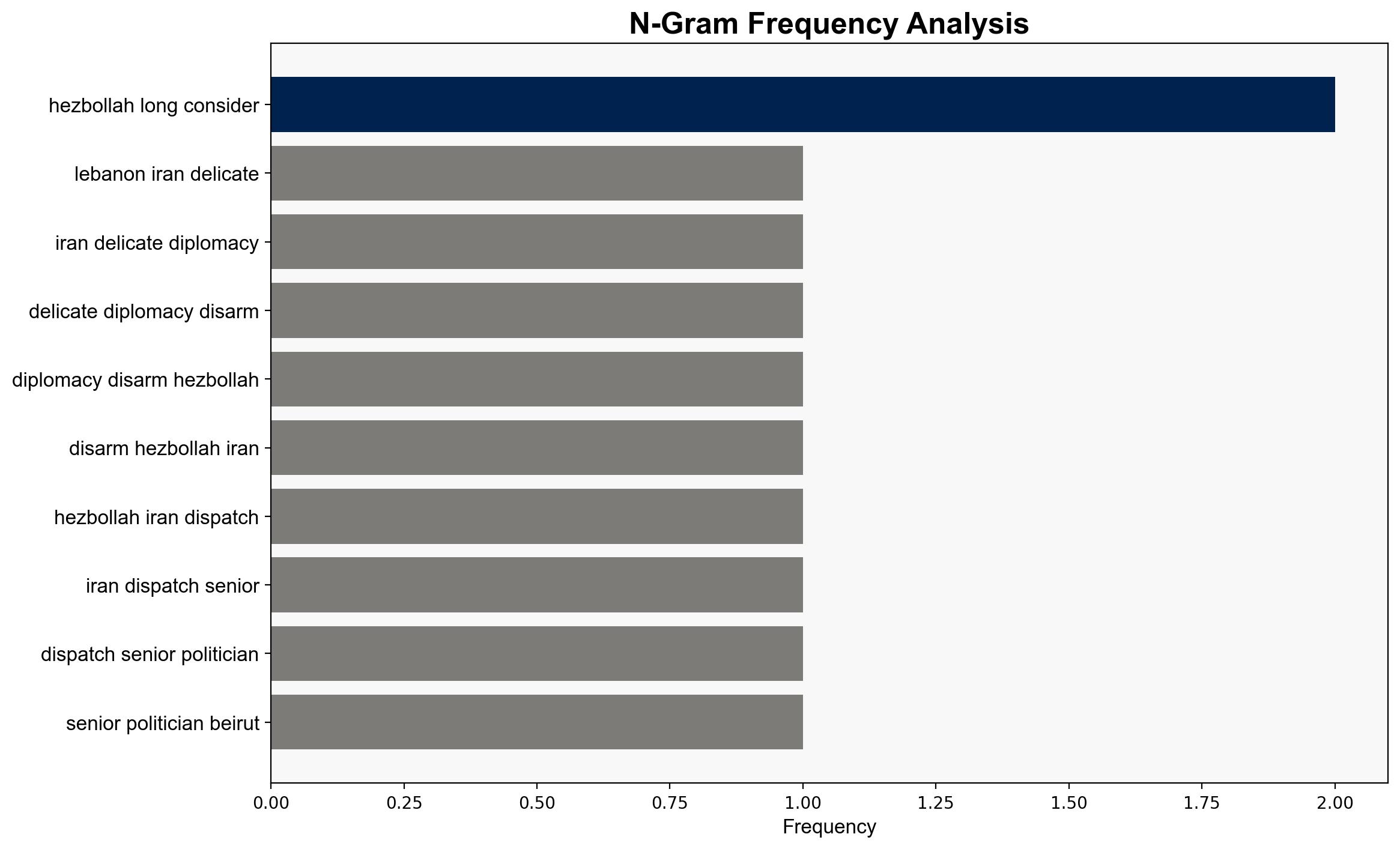Lebanon Irans delicate diplomacy amid calls to disarm Hezbollah – Al Jazeera English
Published on: 2025-08-15
Intelligence Report: Lebanon Irans delicate diplomacy amid calls to disarm Hezbollah – Al Jazeera English
1. BLUF (Bottom Line Up Front)
The most supported hypothesis is that Iran is strategically maneuvering to maintain Hezbollah’s military capabilities as a counterbalance to regional threats, particularly Israel, while managing diplomatic tensions with Lebanon. Confidence level: Moderate. Recommended action: Monitor Iran’s diplomatic engagements and Hezbollah’s military activities closely, while supporting diplomatic efforts to stabilize Lebanon’s internal politics.
2. Competing Hypotheses
1. **Hypothesis A**: Iran is actively working to prevent Hezbollah’s disarmament to maintain its strategic deterrence against Israel and influence in Lebanon. This involves diplomatic efforts to placate Lebanese concerns while ensuring Hezbollah remains militarily potent.
2. **Hypothesis B**: Iran is genuinely engaging in diplomacy to reduce tensions and may be open to a controlled disarmament of Hezbollah, contingent on regional security guarantees and internal Lebanese political stability.
Using ACH 2.0, Hypothesis A is better supported by the evidence of Iran’s historical support for Hezbollah and the strategic importance of Hezbollah as a deterrent against Israel. Hypothesis B lacks substantial evidence, given the strong rhetoric from Iranian officials against disarmament and the geopolitical context.
3. Key Assumptions and Red Flags
– **Assumptions**: It is assumed that Iran views Hezbollah as an indispensable ally against Israel and that Hezbollah’s military strength is crucial for Iran’s regional strategy.
– **Red Flags**: The vehement rejection of disarmament by Hezbollah and Iranian officials suggests a potential overstatement of diplomatic intentions. The lack of concrete steps towards disarmament indicates possible deception.
– **Blind Spots**: The internal dynamics within Hezbollah and potential shifts in its leadership’s stance are not fully explored.
4. Implications and Strategic Risks
– **Geopolitical Risks**: Continued military support for Hezbollah could escalate tensions with Israel, risking broader regional conflict.
– **Economic Risks**: Lebanon’s economic crisis could be exacerbated by instability, affecting reconstruction efforts and international aid.
– **Psychological Risks**: Persistent threats from Hezbollah may undermine Lebanese public confidence in government stability and sovereignty.
– **Cascading Threats**: Increased Israeli military actions could provoke retaliatory measures from Hezbollah, destabilizing the region further.
5. Recommendations and Outlook
- Encourage diplomatic dialogues between Lebanon, Iran, and regional stakeholders to address security concerns and explore potential disarmament frameworks.
- Support Lebanon’s economic recovery efforts to reduce Hezbollah’s leverage over the population.
- Scenario-based projections:
- Best Case: Successful diplomatic resolution leads to a phased disarmament of Hezbollah, stabilizing Lebanon.
- Worst Case: Escalation of conflict with Israel, leading to regional instability and economic collapse in Lebanon.
- Most Likely: Continued diplomatic stalemate with intermittent tensions, maintaining the status quo.
6. Key Individuals and Entities
– Ali Larijani
– Abbas Araghchi
– Naim Qassem
– Youssef Rajji
– Nicholas Blanford
– H.A. Hellyer
7. Thematic Tags
national security threats, regional focus, geopolitical strategy, Hezbollah, Iran-Lebanon relations





